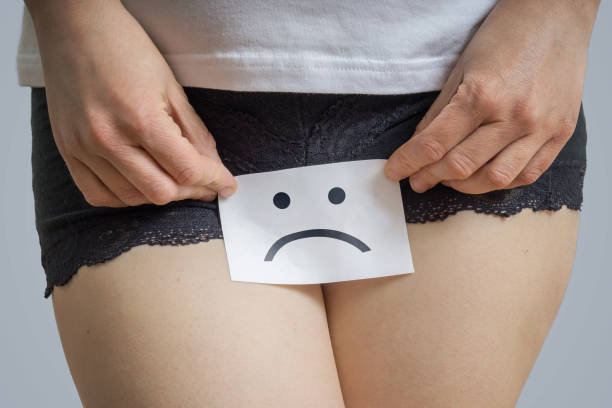
Home Remedies for Vaginal Itching
The discomfort and difficulty concentrating due to itching can cause pain for women. Itching at the vagina can also signify a more severe condition. Vaginitis, for example, is a term used to describe various conditions that can cause the vaginal to become inflamed or infected. Itching in your vagina may be a sign of vaginitis. 1 There are many causes. Continue reading to learn more about vaginal itching, its causes, and how to treat it.
What Causes Vaginal Itching?
A variety of infections can cause vaginal irritation and itching. This is when there is vaginal discharge. These infections can be:
Sexually transmitted infections
Vaginal yeast infection
Bacterial vaginosis2
Menopause (end of menstruation) and low estrogen levels
In the vagina, a foreign body or tampon has been forgotten.
Chemicals can be found in everyday products such as detergents, fabric softeners, and feminine sprays, creams, or creams. 2
The following are less common causes of vaginal itchiness:
Cancer of the vulva or vagina, cervix or uterus
Skin conditions such as desquamative and inflammatory vaginitis (inflammatory vaginitis) and lichen planus (inflammation of the skin) 2
Vaginal Itching:
Itching that occurs on the skin of the vagina or the surrounding area (vulva) is a symptom of vaginal irritation. Sometimes, this symptom can be accompanied by vaginal discharge. 2
To ease itching and irritation, you can warm coconut oils. You can also use tea tree oil by soaking your pelvis in warm water and dropping a few drops into a warm bath. It will help if you exercise caution when using tea tree oil. It can cause burning sensations if it is used in large quantities. 3
To reduce vaginal itching, you can make these changes to your diet:
Yoghurt, Probiotics
Yogurt and probiotics containing lactobacillus can be tried. Some studies show probiotics and yogurt containing lactobacillus may reduce the incidence of vaginal infections.
Limit sugary foods
It is recommended to limit sugary foods to stop yeast growth. It is also recommended that you restrict sugary foods to prevent yeast growth.
These are ways to care for your vaginal area and keep it clean.
Hygiene Habits
Avoid soaps altogether, and rinse the area with water.
Warm water can be used to ease symptoms. It is essential to dry your skin thoroughly after washing.
Do not touch. Douching can cause the vaginal bacteria to die and lead to more problems. These bacteria are essential in preventing infections.
Avoid using hygiene products, powders, or fragrances in your genital area.
Good Sexual Health
To prevent infection from spreading, good sexual health is essential.
Safe sex 2
Using condoms and dental dams can help to prevent infection between partners.
Do not wear a sweaty workout outfit or a wet bathing suit for too long. Warm and humid conditions would encourage yeast and bacterial growth.
A screening by a gynecologist is a good habit to have. Regular gynecologic exams should be done by talking with your healthcare provider.
You can also prevent itching by using these other tips:
Diabetes patients should be careful about their blood sugar levels.
If you have an infection, avoid using tampons. Use pads instead.
By allowing more air to enter the genital region, you can increase its oxygen supply.
Wear loosely fitting clothes.
It is better to wear cotton underwear than synthetic. Wearing cotton underwear is better than synthetic ones. 2
It is essential to know how to clean your genitals properly while you are showering or bathing.
After using the toilet, you should clean it up properly. Always wipe from the front to the back.
How to Get Medical Assistance?
Seek medical help if you:
Vaginal discharge is possible.
May have been exposed sexually to infections
Fever or pain in your pelvis or abdomen 2
You may feel the following symptoms in the event of an infection:
An abrupt change in the quantity, color, consistency, or odor of the discharge
Itching, redness, and swelling of the genital region
Even with home care, symptoms that persist for more than one week or worsen may signify a serious condition.
Blisters or sores on your vulva or vagina
You may experience burning sensations during urination or other symptoms that could indicate a problem with your urinary tract. 2

